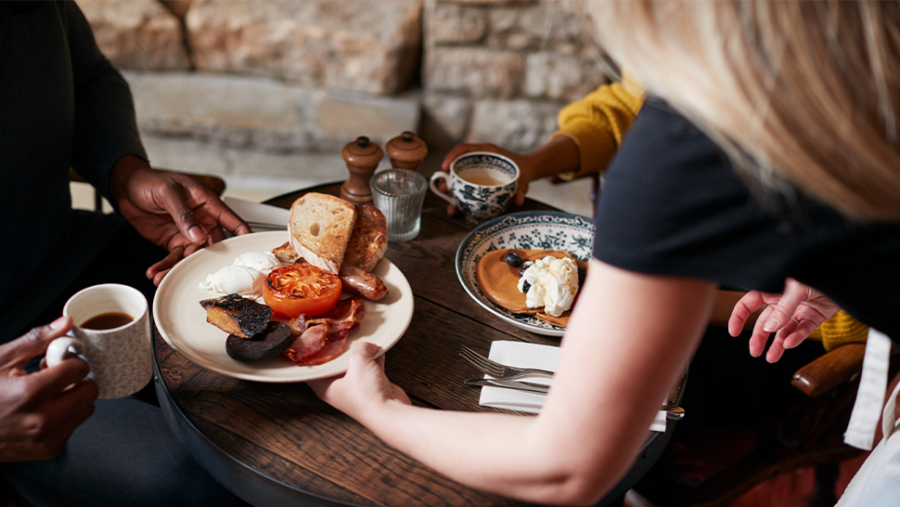

It may be some time before we go back to doing things the way we used to, and it is already clear that some habits will have changed for good. Date night out without the kids at our favourite restaurant has morphed into a takeaway for the whole family delivered to the door during lockdown. It might not be romantic, but perhaps this is the new norm, at least for the time being.
So what is happening behind the scenes? Restaurant and pub operators are having to think on their feet. Whilst help is at hand by way of rates relief, furlough assistance from the government and CBILS loans, it may not be enough to sustain struggling businesses who are not prepared to make changes, and it is hard to see when levels of trade will return to pre-lockdown levels. Pubs are doing some takeaway services and/or click and collect to survive. Others are selling fresh produce from the car park so that they keep their suppliers going.
But what of the future. The outlook for the hospitality sector is stark, phased opening and social distancing will mean that some businesses simply can’t serve enough covers to make it work. The “all you can eat” model is particularly likely to struggle – with high profile locations in leisure and cinema locations, they rely on high footfall and a quick turnaround.
Some businesses had already embraced the increase in demand for home delivery (call it customer laziness if you like) and moved towards producing food in “dark kitchens”, also known as “cloud” or “ghost” kitchens. These are, kitchens which are largely contained in commercial units, sometimes prefabricated structures, situated on industrial estates, outside of town centres. They have no shop front and do not allow customers to pick up food, but which are just hubs for the production and distribution of hot food.
There are many benefits to businesses of running a dark kitchen as opposed to a restaurant or takeaway that relies on footfall and parking. Cheaper rent and rates, more parking for workers and delivery drivers (particularly after working hours when the other workers on the industrial estates have gone home). It also means that businesses can reach areas which are further outside town and city centres (as someone who lives rurally you cannot underestimate the benefits of delivery services – despite assurances when we viewed the house that Domino’s deliver – they don’t).
So what issues do operators of dark kitchens need to be aware of when considering this as an option:
- Planning use – most small scale independent commercial kitchens (ie. dark kitchens), setup primarily for food production with sales and delivery through third parties like Deliveroo, will likely fall within Use Class B1(c). Surprising as it may first seem, food preparation with no sales to visiting members of the public is an industrial process. However, be careful, larger operations with high volume delivery facilities have had their planning use determined as sui generis ‘commercial kitchens and delivery centre’. Always get professional advice.
- Building operations – always remember that the installation of external plant such as extract ducts, flues, and air condenser units will require planning permission (unless its of a scale within the general permitted development rights). You must also comply with relevant building regulations;
- Smells and fumes – think carefully as to how you are going to mitigate smells and fumes. Adverse smells could be a statutory nuisance. The last thing you need is the local council’s environmental health officer knocking on your door following complaints from residents. It may also affect your planning position under Use Class B1(c) and/or any planning permissions required (as appropriate).
- Food hygiene/food safety standards – just because it’s a dark kitchen doesn’t mean the lights are out on food hygiene and food safety standards. These will remain enforceable by the local council’s environmental health officers and the Food Standards Agency.
- Sales and delivery – no doubt a key part of any successful dark kitchen is its sales and delivery of the food prepared. Strongly consider how this will be operated. For example, will deliveries be by car and/or bicycle? Will it use third-party sales and pickup services like Deliveroo? If so, how much do they charge? How will food pickups be managed? Remember high volume delivery facilities may change the planning use.
There are benefits to be gained from dark kitchens for both new entrants and existing business in the food industry. However, early professional advice can be crucial to its long term success. HCR Hewitsons’ Commercial Property Solicitors Team and Planning and Highways Solicitors Team are experienced and well placed to advise you through the issues.










